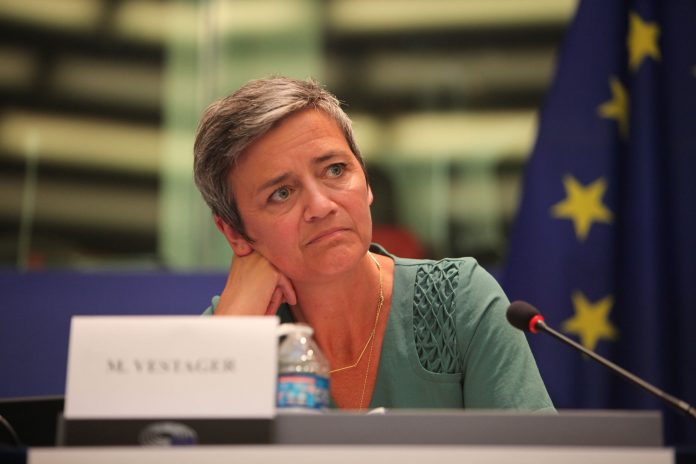The European Commission has approved a German umbrella scheme with a budget of around €11 billion to support companies across sectors in the context of Russia’s invasion of Ukraine. The scheme was approved under the State aid Temporary Crisis Framework, adopted by the Commission on 23 March 2022, based on Article 107(3)(b) of the Treaty on the Functioning of the European Union (‘TFEU’), recognising that the EU economy is experiencing a serious disturbance.
Executive Vice-President Margrethe Vestager, in charge of competition policy, said: “This umbrella scheme will enable Germany to mitigate the economic impact of Putin’s war in Ukraine and to further support companies across sectors affected by the current crisis and the related sanctions. We continue to stand with Ukraine and its people. At the same time, we continue working closely with Member States to ensure that national support measures can be put in place in a timely, coordinated and effective way, while protecting the level playing field in the Single Market.”
The German umbrella scheme
Germany notified to the Commission, under the Temporary Crisis Framework, an umbrella scheme with a budget of around €11 billion to support companies active in all sectors in the context of Russia’s invasion of Ukraine. This scheme follows another measure that the Commission approved on 19 April 2022 (SA.102542).
Under the German umbrella scheme, which will be administered by federal, regional and local authorities, the aid will take the form of (i) guarantees on loans (‘guarantee scheme’); and (ii) subsidised loans (‘subsidised loan scheme’).
In light of the high degree of economic uncertainty caused by the current geopolitical situation, the scheme is aimed at ensuring that sufficient liquidity is available for the companies in need.
The measure will be open to all sectors except credit and financial institutions.
Under the guarantee scheme, the eligible beneficiaries will be entitled to receive new loans that will be covered by a State guarantee not exceeding 90% of the loan amount (35% where losses are first attributed to the State and only then to the credit institutions). Under the subsidised loan scheme, the eligible beneficiaries can receive loans at reduced interest rates to address their investment and/or working capital needs.
The maximum loan amount per beneficiary, which may either benefit from subsidised interest rates or from a public guarantee, will be (i) equal to 15% of its average total annual turnover over a predefined time period; or (ii) to 50% of the energy costs incurred over a predefined 12-month period. In exceptional cases and with appropriate justification, the amount of the loan may be increased to cover the liquidity needs of a beneficiary (i) for a 12 month-period for small and medium-sized enterprises (‘SMEs’); and (ii) for a 6 month-period for large enterprises.
The Commission found that the German umbrella scheme is in line with the conditions set out in the Temporary Crisis Framework. In particular: (i) the maturity of the guarantees and the loans cannot exceed eight years; (ii) the guarantee premiums and the interest charges on the loans respect the minimum levels (modulated by a progressive increase reflecting the duration of the guaranteed loans) set out in the Temporary Crisis Framework; and (iii) the guarantees and the subsidised loans will be granted by 31 December 2022 at the latest.
Furthermore, the public support will come subject to conditions to limit undue distortions of competition, including safeguards to ensure (i) a link between the amount of aid granted to companies and the scale of their economic activity; and (ii) that the advantages of the measure are passed on to the largest extent possible to the final beneficiaries via the financial intermediaries.
The Commission concluded that the German umbrella scheme is necessary, appropriate and proportionate to remedy a serious disturbance in the economy of a Member State, in line with Article 107(3)(b) TFEU and the conditions set out in the Temporary Crisis Framework.
On this basis, the Commission approved the aid measure under EU State aid rules.
More information on the Temporary Crisis Framework and other actions taken by the Commission to address the economic impact of Russia’s invasion of Ukraine can be found here.

